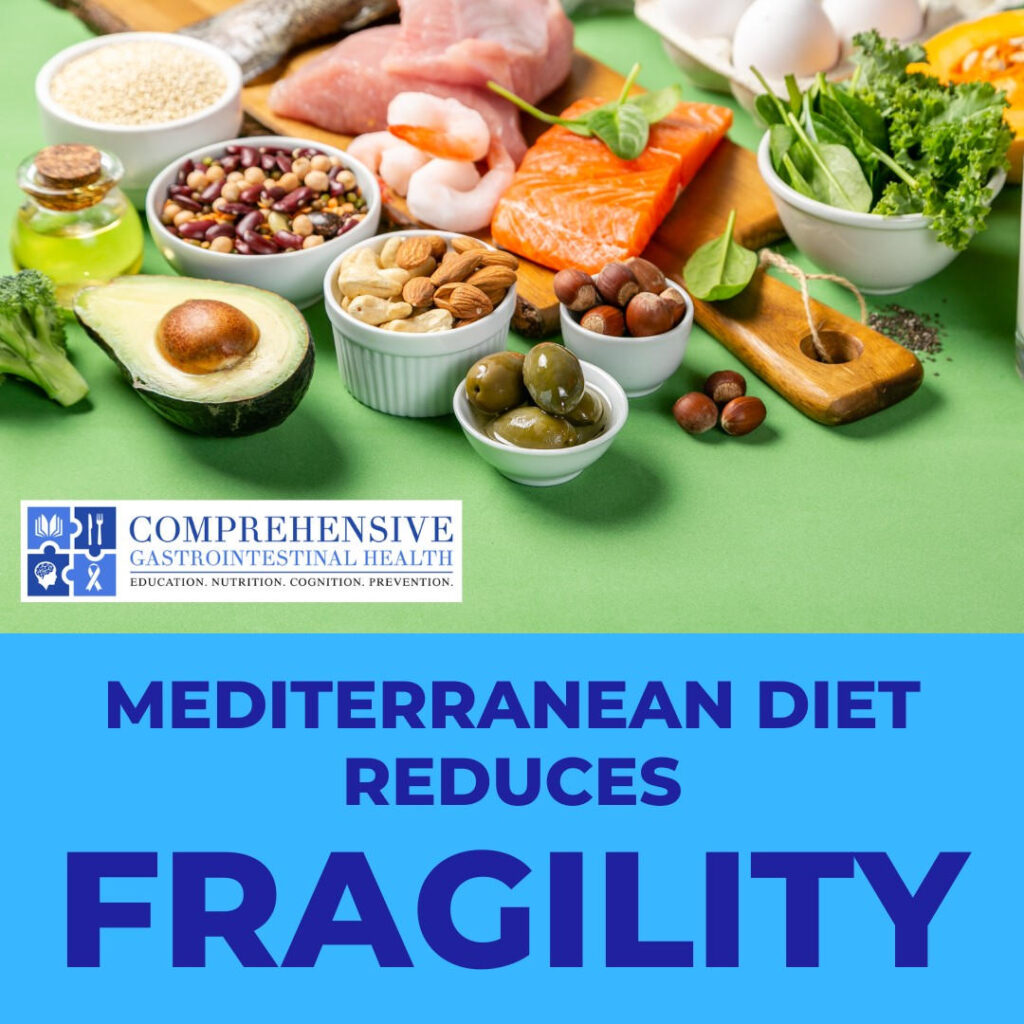Impact of the Mediterranean Diet on Fragility

Fragility is a state of physical and psychological decline that’s estimated to affect at least 10% of older adults. It is related to an increased risk for falls, fractures, disability and hospitalizations. A recent study published in the American Journal of Clinical Nutrition discovered a potential new way to combat fragility with a Mediterranean-style diet.
The Mediterranean diet is rich in fruits, green leafy vegetables, whole grains, olive oil and moderate amounts of low-fat animal proteins which has been widely known to improve cardiovascular disease, diabetes, cognitive decline and gastrointestinal issues. Researchers studied the diet and antioxidant intake of more than 2300 adults from the Framingham Offspring Study over 11 years. Individuals who followed a Mediterranean diet had a 3% decrease in fragility for every point scored on adherence to the diet. The study also found that, “higher intake of carotenoids (an antioxidant commonly found in brightly colored fruits and vegetables) had the strongest association with reduced likelihood of frailty development in middle-aged and older men and women, reporting that each 10-mg higher total carotenoid intake reduced the odds of frailty by 16%.” Researchers concluded that the antioxidant vitamins E and C did not have a significant impact on fragility.
The moral of the story is to increase your intake of a wide variety of colorful plant foods. To receive a customized plan for adding more produce into your diet, schedule a visit with one of our dietitians at Comprehensive Gastrointestinal Health by contacting our office at 224-407-4400 or www.compgihealth.com.
References:
Mediterranean diet may reduce chance of frailty according to new study published in The American Journal of Clinical Nutrition. Published June 27, 2022. Accessed Jun 30, 2022. Millar C, et al. Am J Clin Nutr. 2022;doi:10.1093/ajcn/nqac130.
